Report on Healthcare Professionalism: Quality, Communication, Decision
VerifiedAdded on 2021/10/07
|7
|496
|151
Report
AI Summary
This report analyzes the essential aspects of professionalism in healthcare, focusing on quality care, effective communication, and ethical decision-making. It emphasizes the importance of providing patient-centric, evidence-based treatment while respecting cultural and religious beliefs. The report highlights the need for healthcare professionals to possess strong communication and interpersonal skills to effectively interact with patients and their families, including those with disabilities. Furthermore, it stresses the significance of sound decision-making processes that prioritize patient well-being, involve all relevant stakeholders, and utilize updated technology and evidence-based practices. The conclusion underscores the necessity of fostering professionalism to achieve positive healthcare outcomes.
1 out of 7

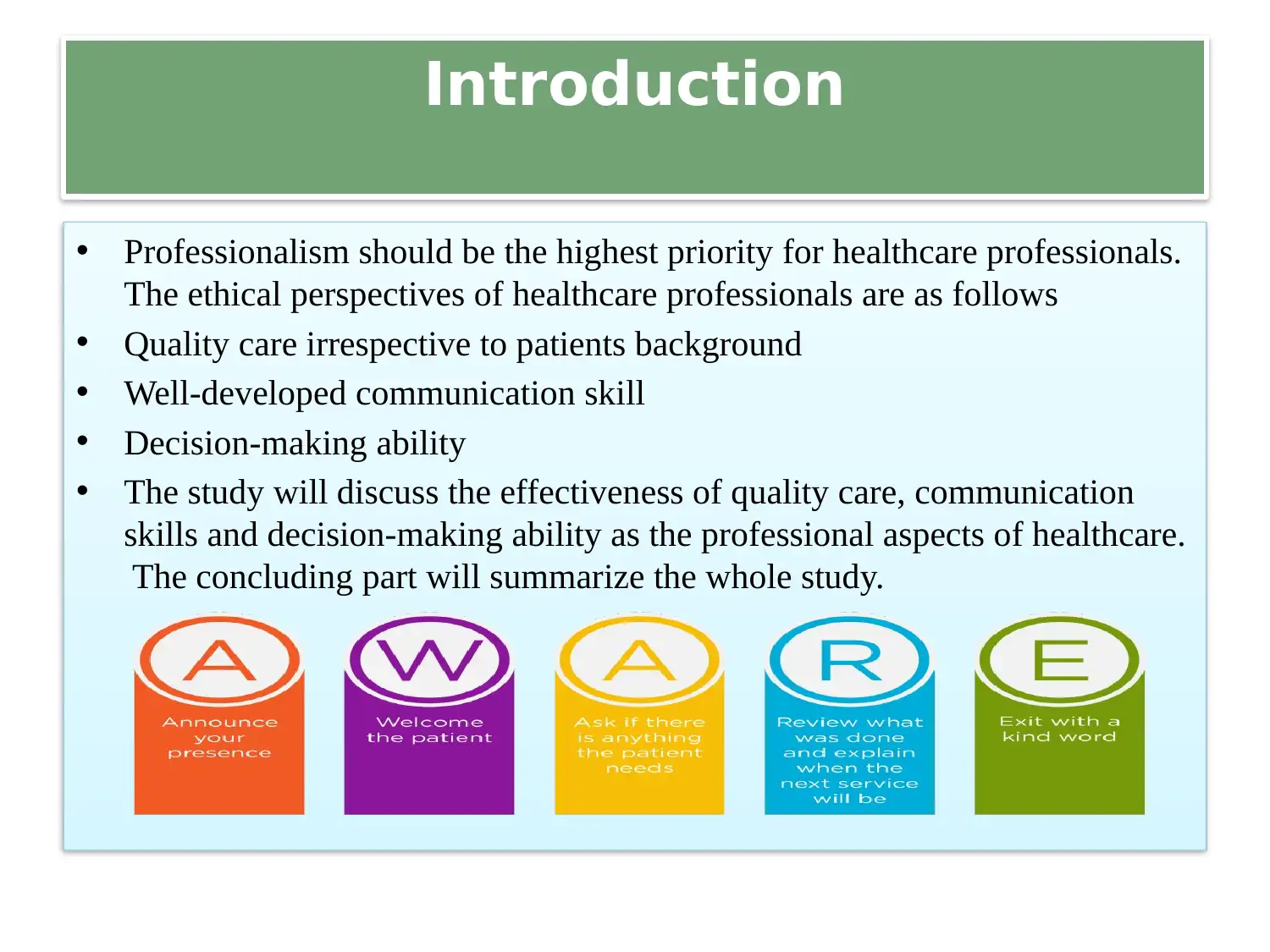
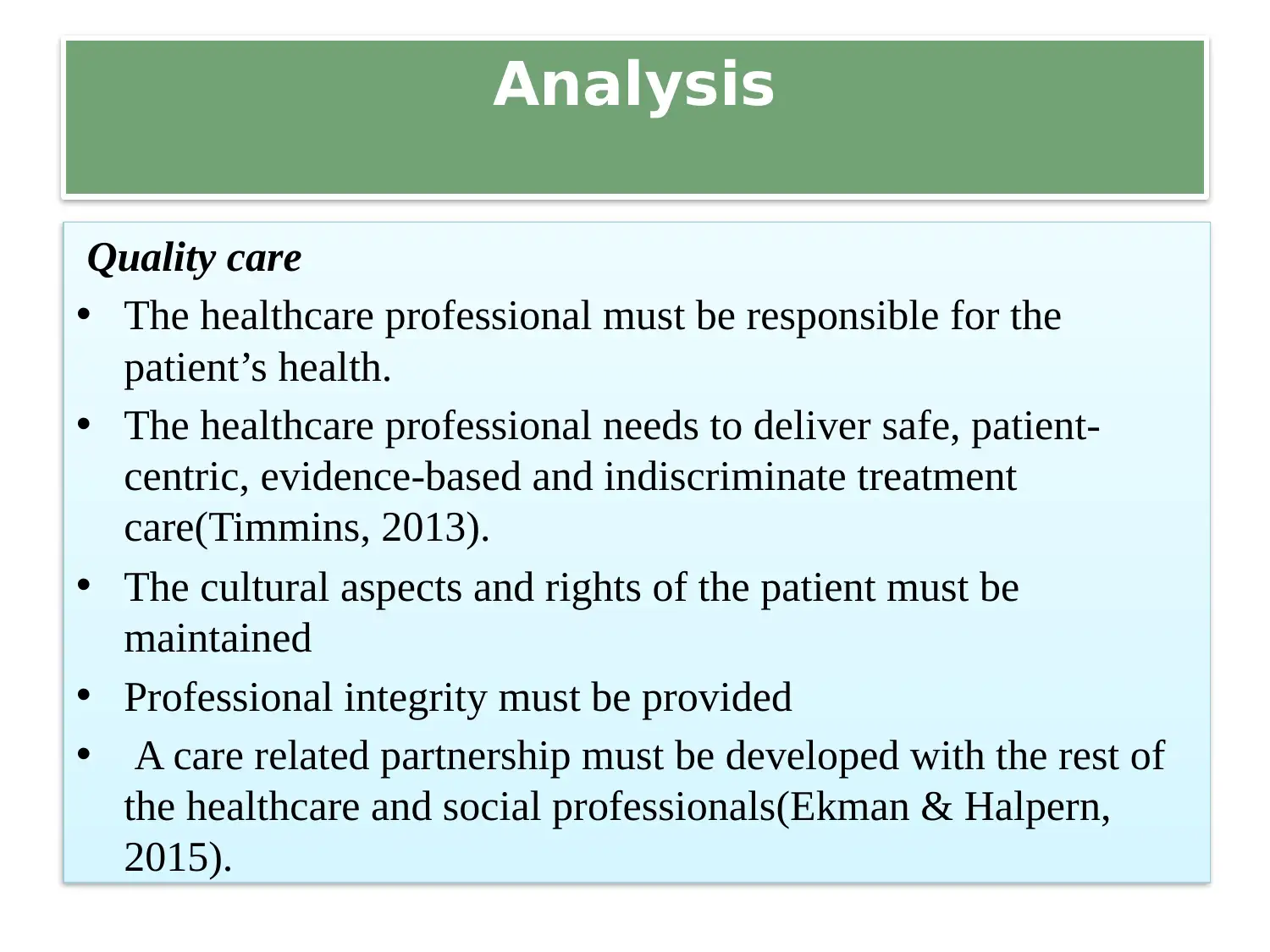

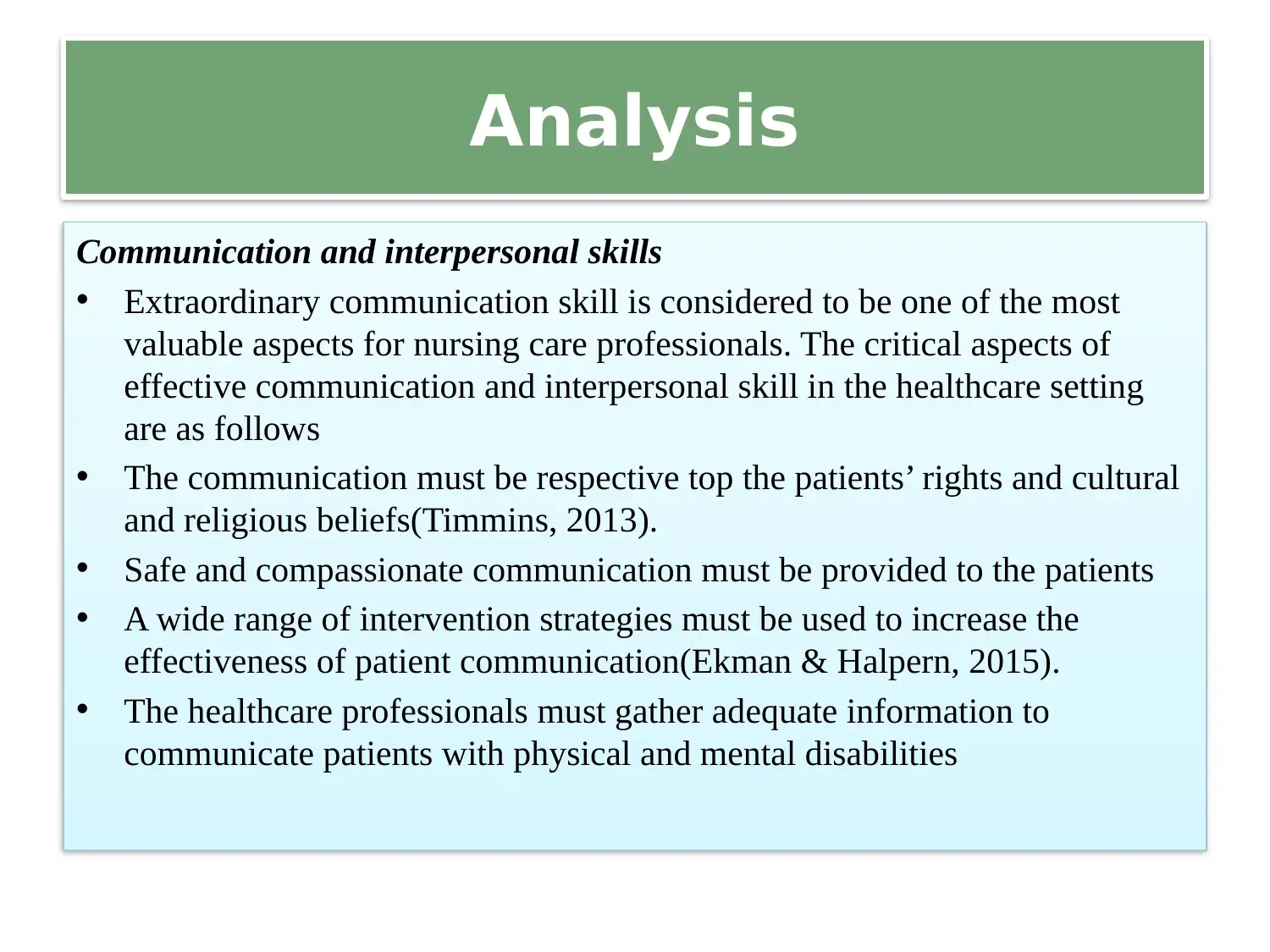
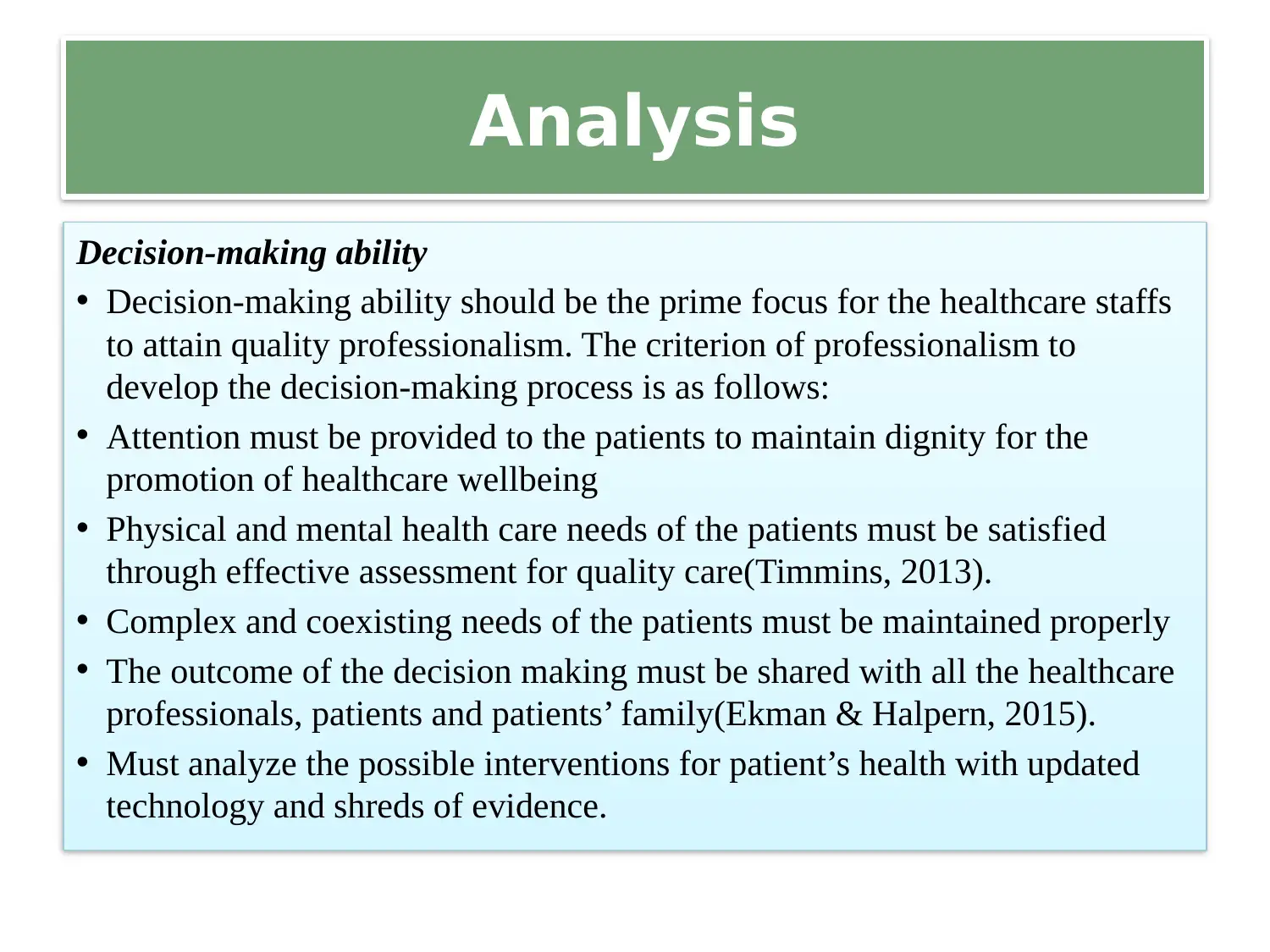
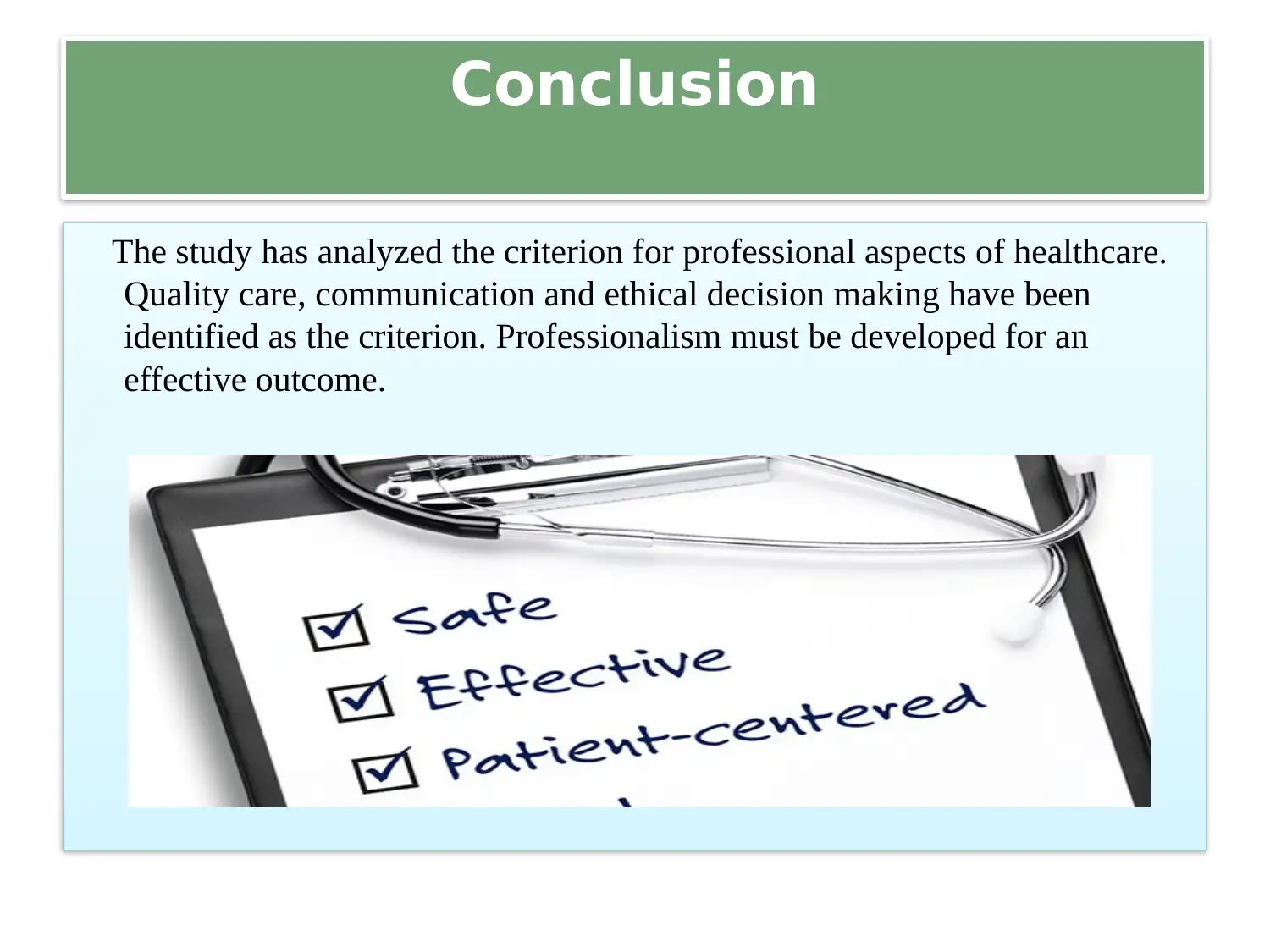
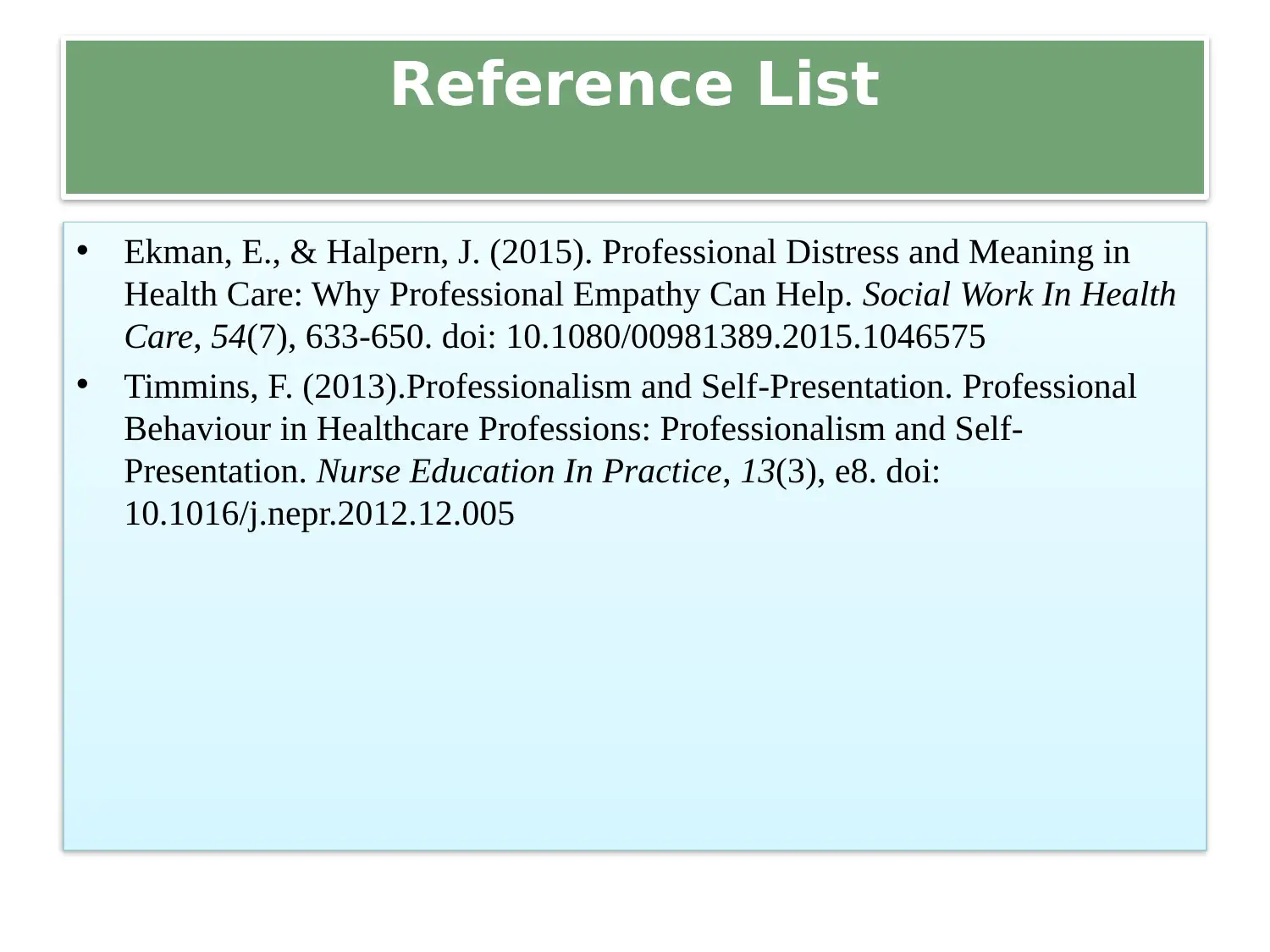






![[object Object]](/_next/static/media/star-bottom.7253800d.svg)